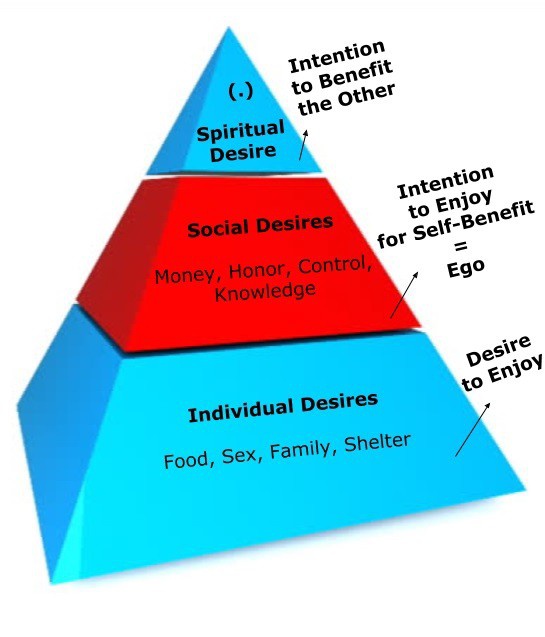 Michael Laitman, On Quora: “Why do people see the human ego is bad?“
Michael Laitman, On Quora: “Why do people see the human ego is bad?“
The human ego is seen as bad when it is overblown, causing people to exploit, manipulate and abuse each other in the name of pleasure.
Due to the ego causing so much division and conflict in and between societies, many people try to lessen the ego’s impact, trying to restrain it using a variety of techniques.
I have been studying and teaching the wisdom of Kabbalah for over forty years, which fundamentally differs to many other approaches to the ego.
It does not deal with restraining the ego. Instead, using Kabbalah, we reach an acknowledgement of the ego’s purpose, and learn how to navigate the ego in a way that makes it beneficial to society.
The human ego differentiates us from animals. It is an additional desire to enjoy ourselves beyond our survival necessities.
While on the surface it might seem as if certain animals are bad because they live their lives killing other animals, it is far from the case. Animals follow an inner programming that leads them to fulfill their survival needs, and if they kill other animals, it is due to their programming to feed themselves and their offspring, which emerges naturally.
Humans, on the other hand, can kill out of hatred for others, enjoying from others’ pain, and of their own growth in status above those that the human kills. Such hatred and enjoyment in the pain of others is a quality unique to humans, nonexistent in animals, and which extends from the human ego.
The ego thus separates humans from animals.
On the other hand, the ego is a driver of human progress. Our pursuits in science, technology, arts, music, culture and many others, are primarily fueled by the ego that wants more than the other.
It has placed us at the top of nature’s four-layered pyramid comprising the inanimate, vegetative, animate and human.
The question then becomes when is the ego detrimental and when is it beneficial?
The ego becomes problematic when we use it to self-benefit at the expense of others. When we adjust the intention upon the ego, directing it to benefit others over its drives to self-benefit, then the ego becomes beneficial to other people, as well as to all other levels of nature.
The adjustment of our intention upon our ego from self-benefit to benefiting others is possible the more we acknowledge the tightness of our interdependence.
The more we feel dependent on each other, then the more we will realize that we need to aim our egos at the common good.
On one hand, blows such as the coronavirus pandemic increase our understanding and feeling of our interdependence. On the other hand, we need not wait for such blows to wake us up to our interdependence, but can instead learn about how we can realize our interdependence in a positive way, and by doing so, alleviate many blows that we otherwise feel.
In the wisdom of Kabbalah, the way of accumulating suffering and blows to wake us up to our interdependence is called “the path of pain,” and the way of actively waking ourselves up to our interdependence and how to adjust our egos to it is called “the path of light.” The latter path is one which the wisdom of Kabbalah offers a method to access.


No comments:
Post a Comment